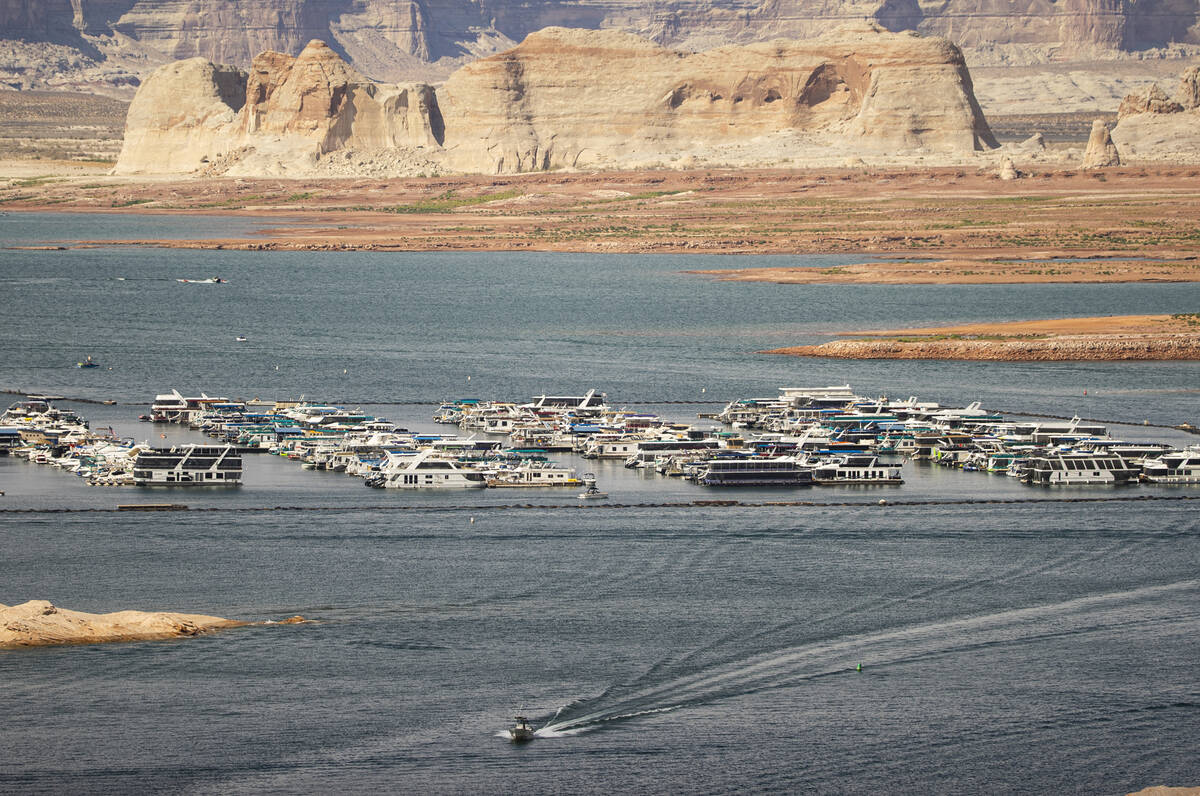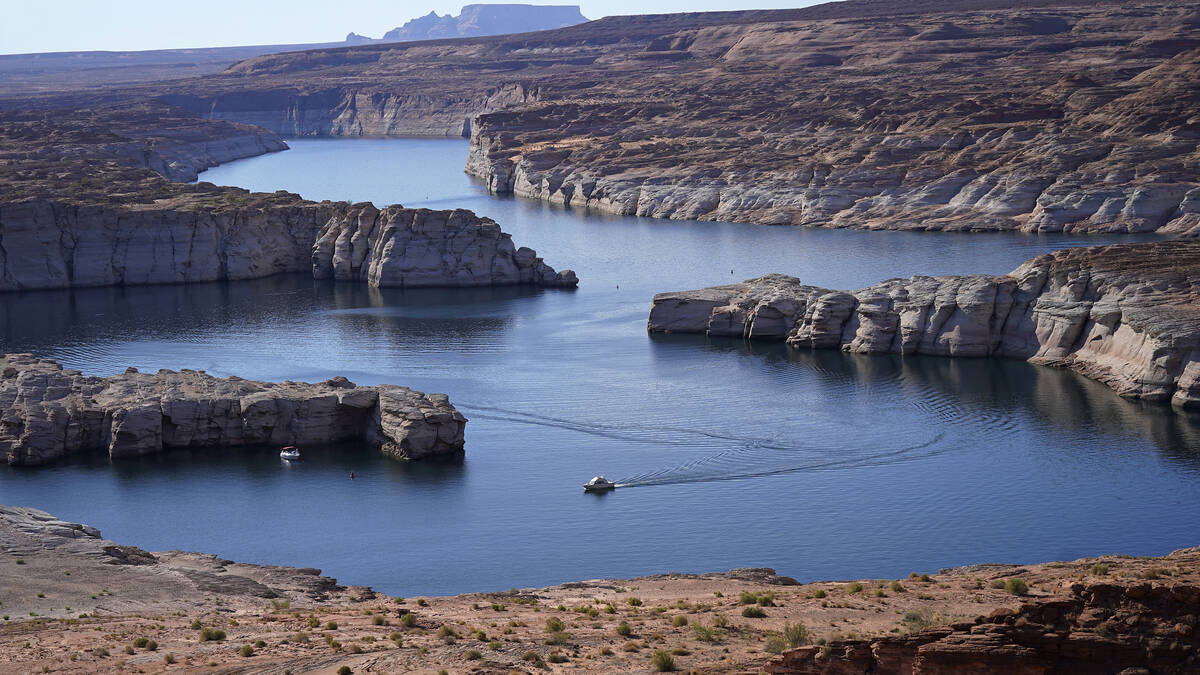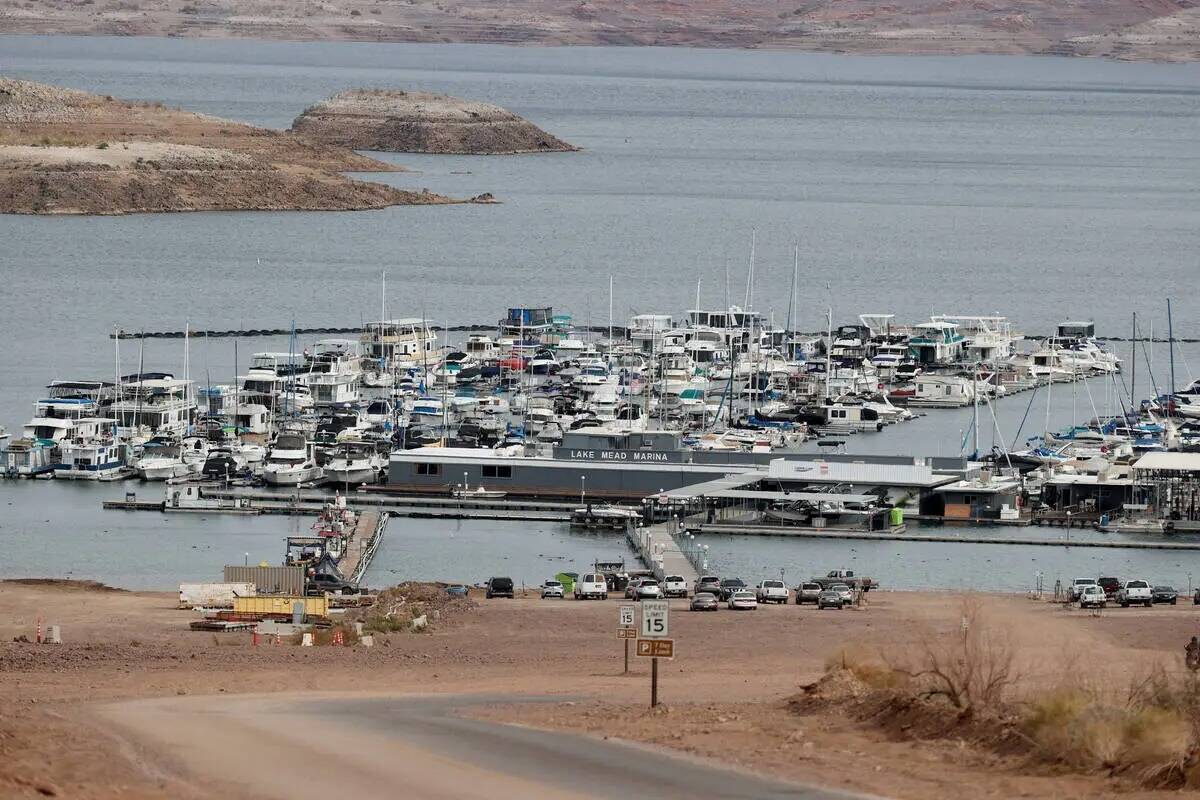States announce plan to curb water use above Lake Mead, but is it enough?
The states that make up the upper half of the Colorado River Basin kicked off a plan to curb water use above Lake Mead.
During a meeting held at the annual Colorado River Water Users Association in Las Vegas on Wednesday, the Upper Colorado River Commission announced that it is now accepting proposals from users as part of a $125 million program that would pay them not to use their water rights.
The announcement comes as the seven states that pull water from the Colorado River continue to work toward a consensus on how to cut water use along the dwindling river in the coming years, with federal officials calling for cuts as high as 30 percent next year in order to protect water delivery and hydropower operations at the river’s two biggest storage reservoirs in Lake Mead and Lake Powell.
The states have yet to come to an agreement, with stark divisions between the upper basin states — Wyoming, Colorado, Utah and New Mexico — and the lower basin states of California, Nevada and Arizona.
“The real enemy here is not the other basin, not alfalfa, not golf courses. The common cause that we have to address is climate change induced lower flows,” commission Chair Anne Castle said. “That’s what we have to work on together. It’s not an enemy that we can defeat. It’s one that we have to live with.”
Limited impact
Just how much the program will save is unknown, and the commission said it does not have a target volume for how much water it would like to conserve.
Elizabeth Koebele, an associate professor at University of Nevada, Reno who studies water policy and governance, said she isn’t sure the upper basin’s plan will have much of an impact on the larger aspect of the Colorado River’s woes.
The federal government in June tasked the Colorado River Basin states with cutting water use by 2 to 4 million acre feet starting next year to buoy levels at Lake Mead and Lake Powell. The Bureau of Reclamation in recent public presentations has painted a grim picture of what could happen if no action is taken, including Lake Powell’s ability to generate hydropower being threatened by as early as spring of 2023.
“I do think there is interest in this kind of temporary, compensated conservation. But whether that matches up with what we need in the basin to actually mitigate some of these negative trends that we’re seeing, I have my doubts.”
Koebele said she also wonders just how much interest there will be in the program from water users, some of whom are already facing water curtailments due to the shrinking water supply.
Revamping farm plan
The plan is a revamp of a previous pilot program to pay farmers and other users in the basin to not use their water as part of a prior effort to conserve water from 2015-2018.
Congress still needs to give the program authorization before it could officially move forward, which could happen as early as Friday or early next week, said Chuck Cullom, the commission’s executive director.
The base compensation rate starts at $150 per acre-foot of conserved water, which is quite a bit lower than rates that some farmers and other users throughout the basin were seeking.
It’s also lower than the $300 to $400 per acre-foot that the federal government said in October it would pay farmers and water districts to conserve water, using $4 billion in drought response funding that has been approved by Congress.
Cullom said that rate is based on the medium compensation from the last year the original program was in place in 2018. Upper basin water users will have the opportunity to request higher compensation, but only if they can justify that increase.
“We will not support speculation and profiteering through this program,” Cullom said.
Contact Colton Lochhead at clochhead@reviewjournal.com. Follow @ColtonLochhead on Twitter.
























